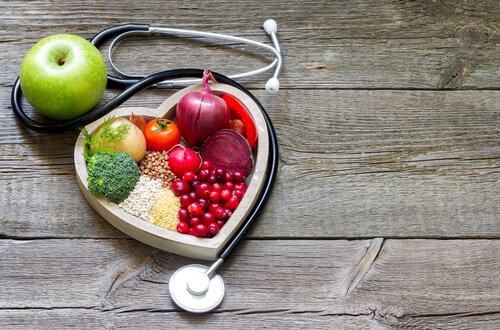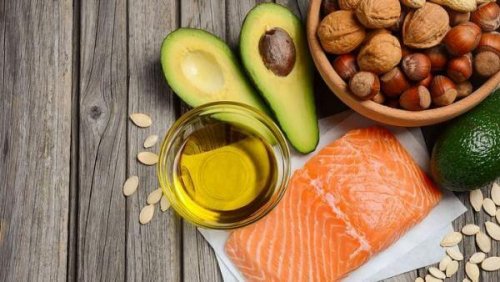The Three Most Popular Food Myths

Nutrition is really confusing. As of now, there are so many theories, false information, and different points of view on how we should eat. Thus, we feel lost when it comes to what we should do to lose weight or start eating healthier. In this article, we want to tell you all about the three most popular food myths.
Scientific studies have debunked all these food myths over the years. Thus, they have little to tell us about the best way to eat. For each of them, you’ll find an explanation as to why people thought they were true and what ended up debunking them.
Where do food myths come from?
Nutrition, like psychology or medicine, is a science that’s directly related to human beings. Many times it’s quite impossible to carry out ideal clinical studies regarding nutrition. This makes knowledge in this area much more difficult to develop than in other fields such as physics or chemistry, where the rules regarding manipulation are less restrictive.

Most studies regarding nutrition are based on statistics. Although the data statistics gives us tends to be useful, statistics generally doesn’t allow us to establish causality. This explains why scientists sometimes can’t seem to figure out why a certain result occurs.
Nutrition data is always going to be incomplete until a clinical study is performed. Therefore, this young science still lacks all the answers about what is healthy and what isn’t. However, over the last decades, a lot of new information in this field has emerged, mainly due to the obesity epidemic that arose in many developed countries.
Without further ado, here are three of the most popular food myths.
1. Eating a lot of eggs isn’t healthy
One of the main food myths is that eating a lot of eggs (especially the yolk) can bring all kinds of problems. This idea comes from the belief that consuming a lot of cholesterol will affect our cholesterol levels. It sounds logical, doesn’t it?
However, recent studies show that eggs don’t affect our body’s cholesterol levels. As of now, we know that our body produces this substance four times more than what we’re able to eat in a day, so adding eggs to our diet won’t affect us.
2. Consuming fat makes you fat
Another huge food myth is that eating too much fat may make us gain weight. However, nowadays it’s known that this isn’t exactly how it works.
This belief came from counting the calories included in each type of macronutrient. While carbohydrates and proteins have two calories per pound, fat has four. Therefore, it’s logical to think that if we want to lose weight, we have to eat more of the first two types of nutrients and less of the latter.
However, recent studies suggest that, within normal parameters, adding an appropriate amount of fat to our diet can actually make us lose weight. The reason for this is that this substance is involved in a large number of fundamental weight loss related processes such as testosterone production, the sensation of satiety, or the acceleration of basal metabolism (the speed at which we naturally burn calories).
3. Breakfast is the most important meal of the day
My grandmother used to always repeat a popular saying that summarizes one of the huge food myths: “Eat breakfast like a king, lunch like a prince, and dinner like a pauper”. This saying is based on the old belief that having a large breakfast will ensure we function properly throughout the day.

Although a nutrient-rich breakfast (such as vegetables and protein) can give us energy throughout the day, the truth is that the typical Western breakfast doesn’t. When we have sugary cereals or pastries for breakfast, our body suffers from a series of insulin spikes that give us short-term energy.
Therefore, the two most recommended options according to breakfast experts are:
- Eating foods low in sugar but not low in fat and protein.
- Skipping breakfast, also known as “fasting“.
The information in this article may have surprised you. We’re aware that it goes against what we’ve traditionally learned about nutrition. However, the good thing about science is that it’s progressing little by little as new evidence arises. Who knows what we’ll discover in the future regarding this important field?
This text is provided for informational purposes only and does not replace consultation with a professional. If in doubt, consult your specialist.








